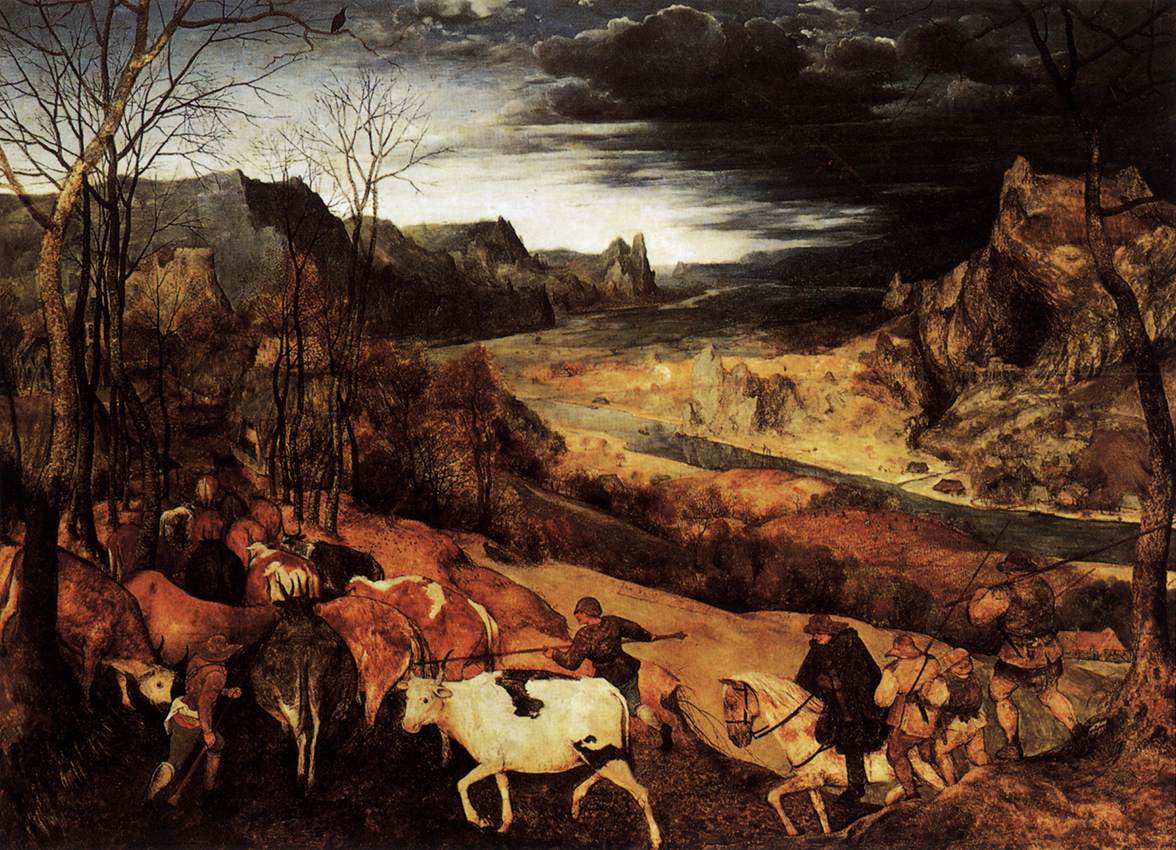Description
The painting "The Return of the Herd (November)" by artist Pieter Bruegel the Elder is a 16th-century masterpiece featuring fascinating composition and masterful use of colour. The work shows a rural scene in which a group of shepherds and peasants lead a flock of sheep towards their home after a day of grazing in the fields.
The painting is noted for its realistic artistic style, which is characteristic of the Flemish Renaissance. Bruegel uses detailed and painstaking technique to create a vivid and detailed image of rural life in the 16th century. The composition of the work is particularly interesting, as Bruegel manages to create a sense of depth and space by placing the characters on different planes and levels.
The use of color in the painting is exceptional, with a palette of warm, earthy tones that reflect nature and rural life. The artist also uses color to create contrasts between the different elements of the painting, such as the light blue sky against the brown and gold landscape.
The story behind the painting is intriguing, as it is believed to have been part of a series of twelve paintings that Bruegel created to represent the months of the year. "The Return of the Herd (November)" depicts the month of November, when shepherds would bring their sheep back to their homes before winter.
There are lesser known aspects of painting that are also fascinating. For example, Bruegel is believed to have included hidden details in the work, such as the figure of a hunter in the background that could be a reference to poaching. Furthermore, some experts believe that the painting could also be a political allegory, with the shepherds and peasants representing the Flemings who were resisting Spanish oppression at the time.
In short, "The Return of the Herd (November)" is a masterpiece of Renaissance painting that stands out for its realistic artistic style, detailed composition, and masterful use of color. The story behind the painting and its possible allegorical meanings make it an even more interesting and intriguing work for art lovers.

